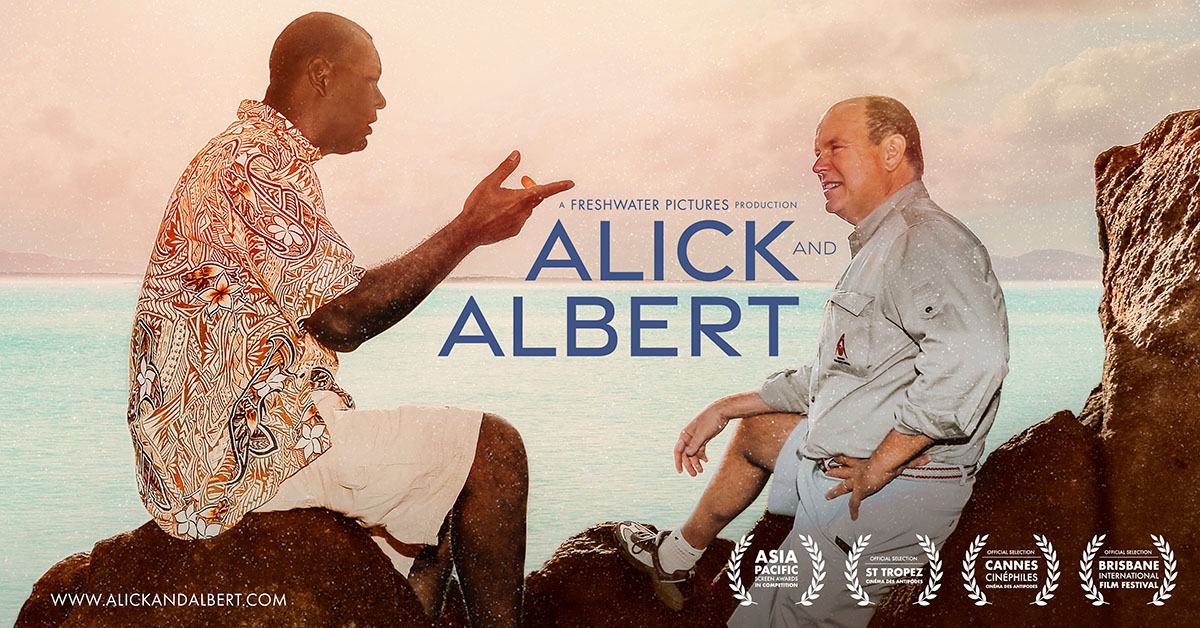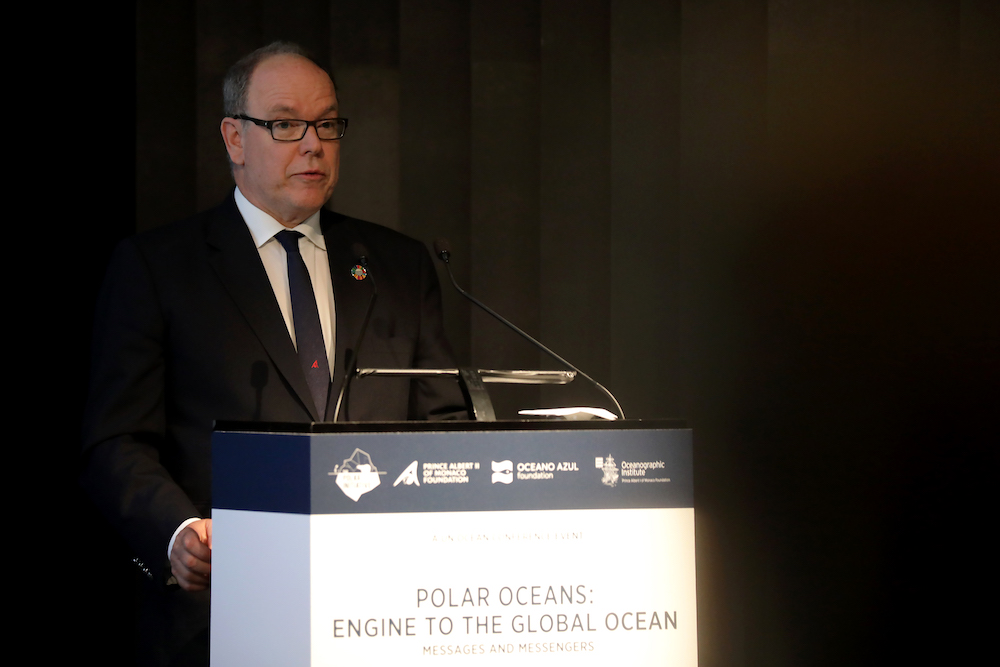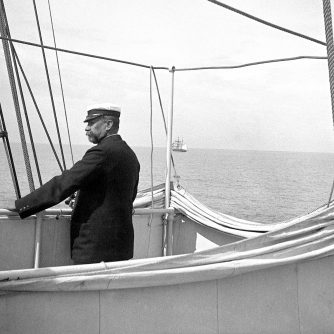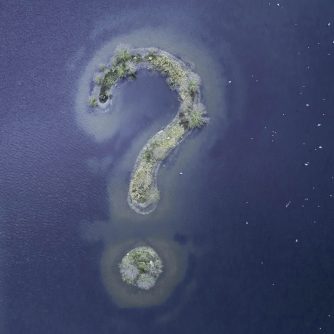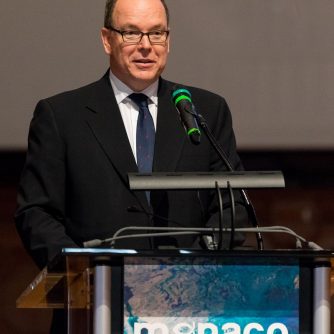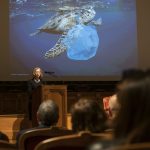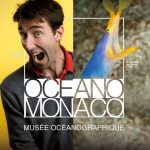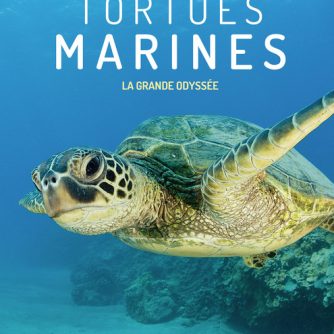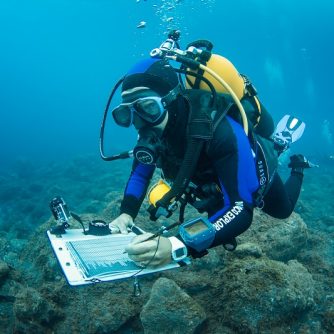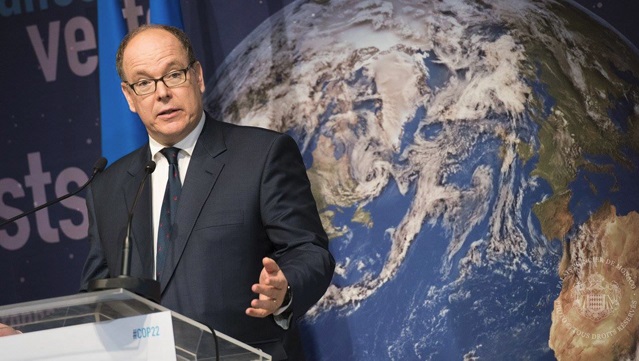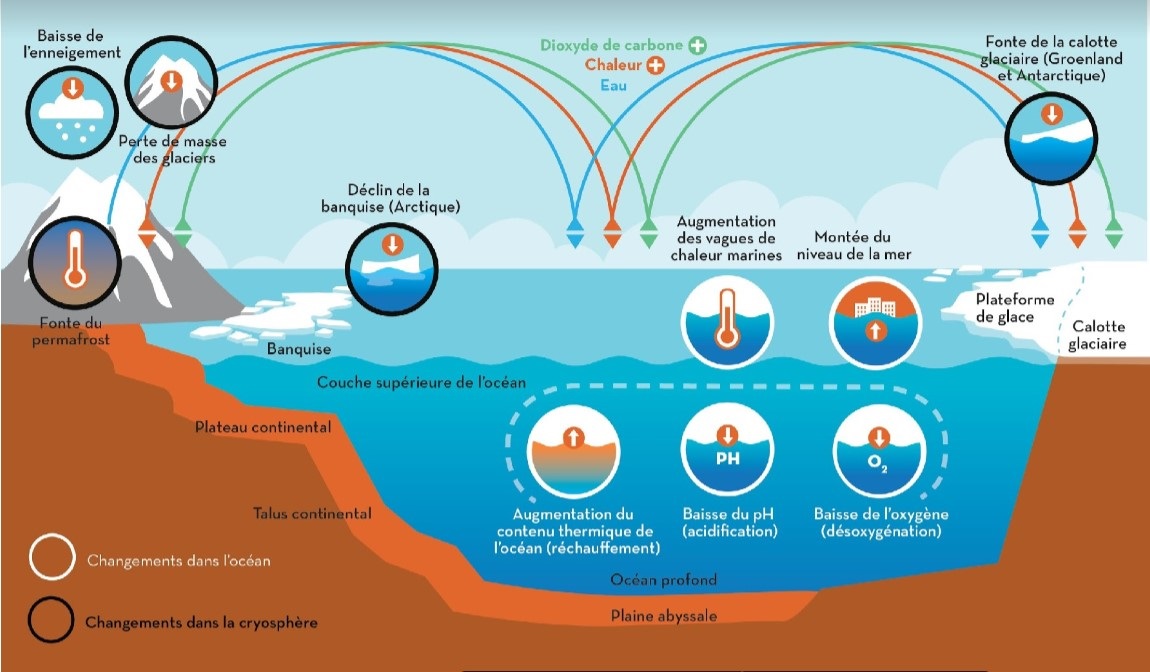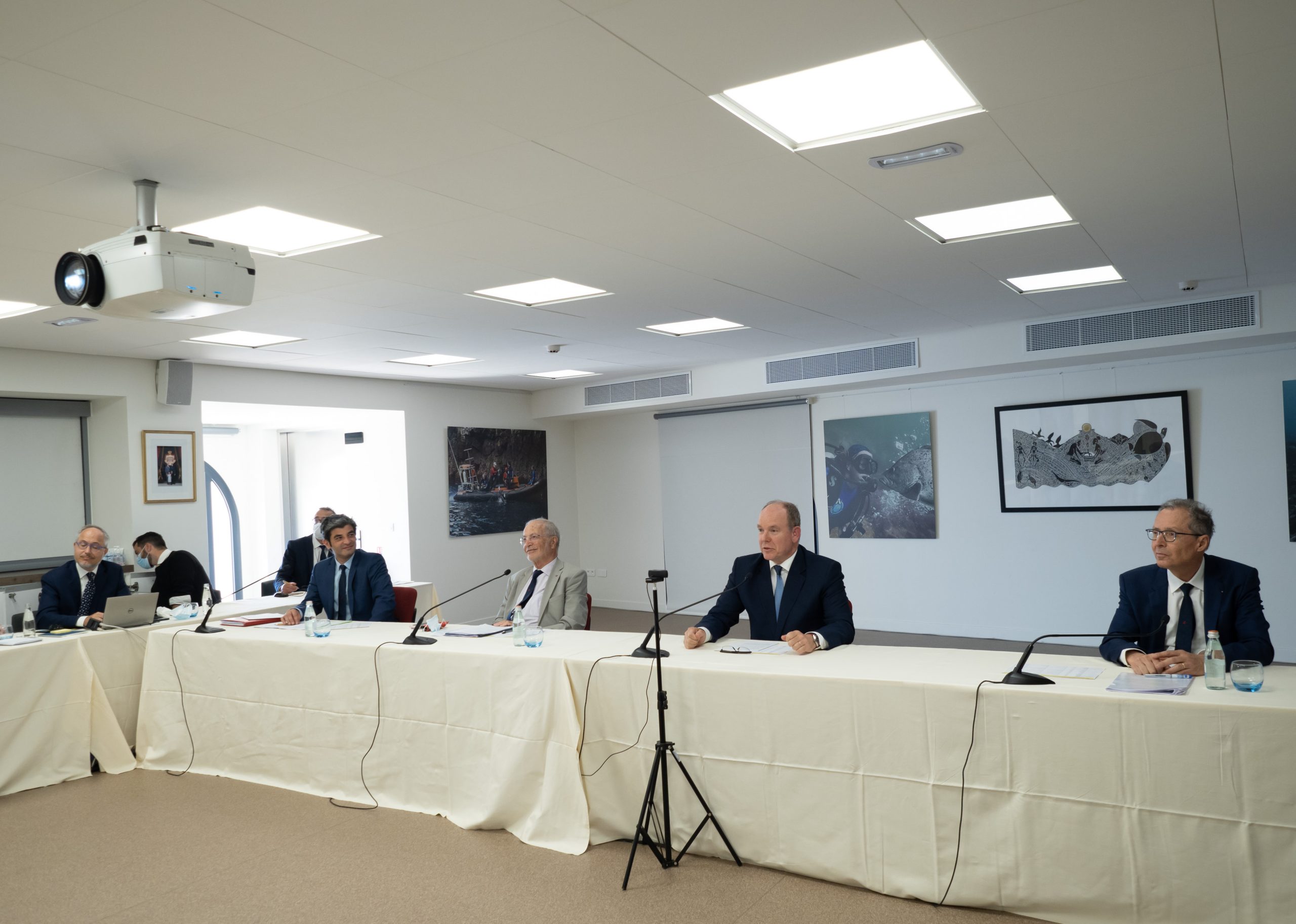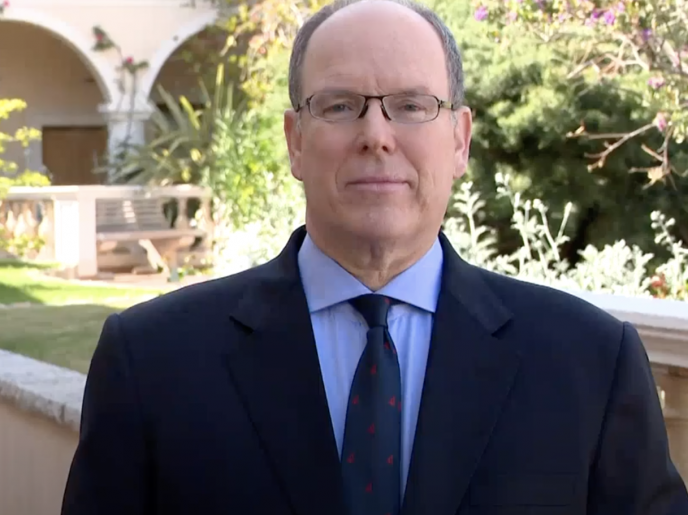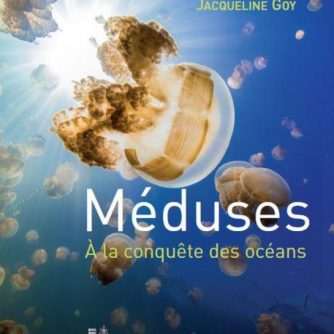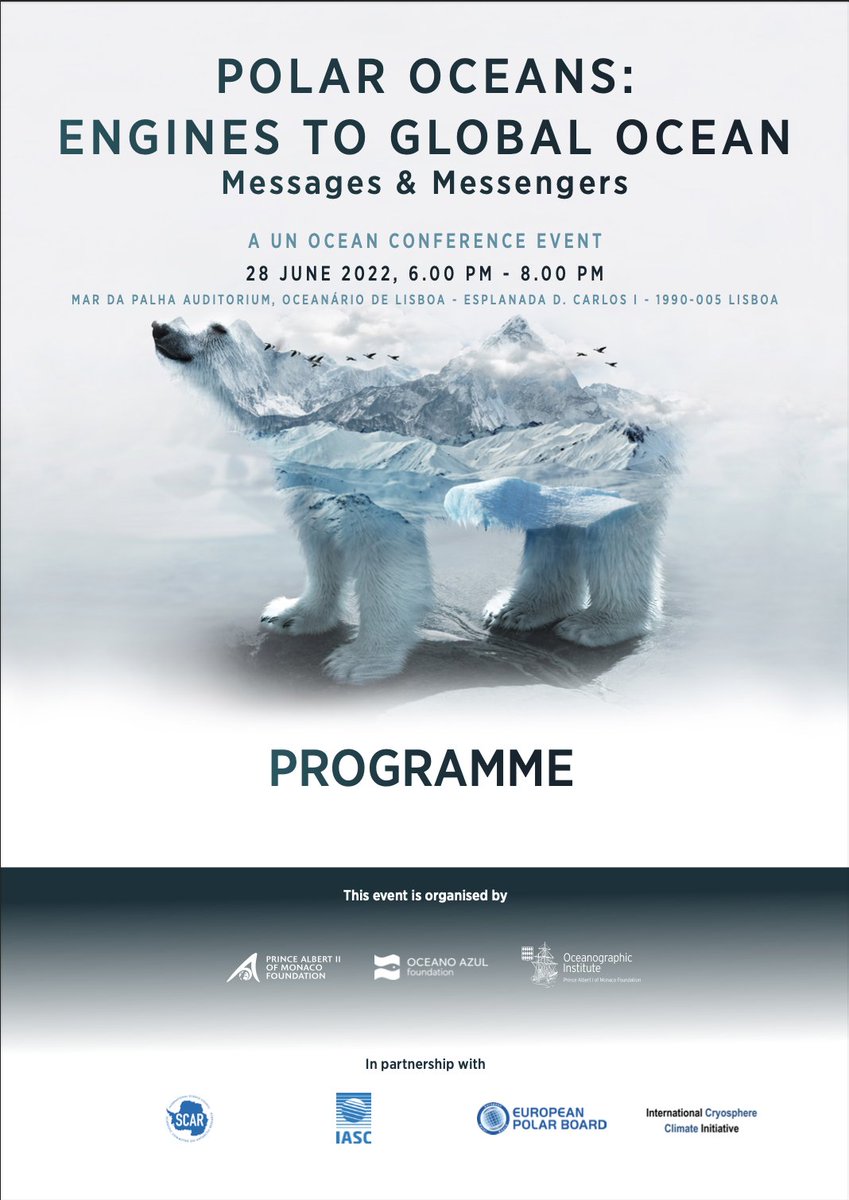
- Home
- Categories
- Monaco, the voice of the Ocean
Ocean and Human Health Symposium
Monaco, December 3 & 4, 2020
- Reading time: 2 min

2 YEARS OF WORK BY THE MONACO SCIENTIFIC CENTRE AND BOSTON COLLEGE,
WITH THE participation of the PRINCE ALBERT II OF MONACO FOUNDATION
The health of the ocean and human health are inseparable. The links are numerous, everywhere on the Planet, for better or for worse…and it is up to us to choose!
On 2 and 3 December 2020, in Monaco, the
Symposium Human Health and the Ocean in a Changing World
This symposium was the culmination of nearly two years of research on the subject by the Centre Scientifique de Monaco and Boston College with the Prince Albert II of Monaco Foundation. 44 authors from 18 countries contributed to the report that sheds light on these links.
efforts to link healthy ecosystems to our own...
The ocean provides us with invaluable benefits, which unfortunately can be destroyed by our negligence. Seafood, whether from fishing or aquaculture, has excellent qualities that contribute to our physical or mental health, while being energy and fresh water efficient. Unfortunately, they also accumulate the pollutants we release from the continents.
Plastic waste is the tip of an iceberg of pollutants from agriculture, industry, coal burning… and climate change is increasing the circulation of pathogens and the development of toxic microalgae.
Like climate change, ocean pollution is a cruel injustice. Currents and animals carry pollutants over great distances and, far from the emitting countries, the effects can be formidable on the communities that depend most on seafood for their food or economy, from tropical islands to the Inuit.
But there is no fatality. All pollution is of human origin, usually land-based. We can take action now by going to the source. The ocean can bounce back when the damage stops. This is the message of the Monaco Declaration that concluded the meeting.
A call to take stock of the problem and take action to ” Advance human health and well-being by preventing ocean pollution. “
More articles
- Home
- Categories
- Monaco, the voice of the Ocean
The Prince Albert II of Monaco Foundation, the Oceanographic Institute and the Société des Explorations de Monaco join forces to promote the health of the Ocean - 06/11/2020
On November 5, by videoconference, REV Ocean and the three Monegasque institutions ratified a partnership agreement to work on ocean sustainability.
Nina Jensen, CEO of REV Ocean, said:”This is a great opportunity to work with some of the world’s leading marine conservation organizations. H.S.H. Prince Albert II and his foundation have initiated a number of projects to develop marine protected areas and to study the impacts of climate change. It’s very exciting to think about what we’re going to achieve by combining this level of commitment with the largest research vessel in the world“.

REV Ocean
REV Ocean is a non-profit company created with one goal and one ambition: to make our oceans healthy again. Established in Norway in 2017, REV Ocean’s mission is to enable and inspire ocean solutions and combat the negative pressures currently affecting the ocean. The science strategy focuses on the issues of plastic pollution, climate change and the environmental impacts of unsustainable fishing.
See also
A decisive step for biodiversity?
"Leadership Commitment to Nature".
- Home
- Categories
- Monaco, the voice of the Ocean
Have we finally reached a true awareness
on the erosion of global biodiversity?
Since the
IPBES report in May 2019
on the Global Assessment of Biodiversity and Ecosystem Services, biodiversity joins climate in the spotlight. And there too, the news is bad. The change is brutal and very unfavourable for humans as well as for other species. The latest UN report on the global outlook for biodiversity highlights that none of the international commitments made in 2010 – the Aichi targets – have been met.
But this week, at the summit of Heads of State and Government on biodiversity organised by the United Nations on 30 September 2020, a block of countries – of which Monaco is naturally a part – showed itself more determined than ever to reverse this trend.
Some sixty Heads of State and Government signed a “Leaders’ Commitment for Nature” that was particularly lucid and ambitious, at least on paper.
Even if we can regret the absence of certain large countries, this appeal could be a milestone if it is followed up, because it resolutely places biodiversity at the heart of the balances of our Planet that are necessary for human development, as well as at the heart of the political decisions that must be taken on the path of development that we wish to follow.
Recognizing that “nature underpins human health, well-being and prosperity”, the signatory decision-makers are mobilizing to “put nature and biodiversity on a path to recovery by 2030” in order to “achieve the vision of living in harmony with nature by 2050”.

A holistic approach
In particular, the signatories committed to “end traditional silo thinking and address the interlinked challenges of biodiversity loss, land, freshwater and ocean degradation, deforestation, desertification, pollution and climate change in an integrated and coherent manner, ensuring accountability and strong and effective review mechanisms, and lead by example through action in [leurs] own countries”
To this end, they commit to “strengthen cooperation between multilateral environmental agreements, international organizations and relevant programmes”.
For the Ocean in particular, coordinated action is needed on the various threats to biodiversity:
Against overexploitation, the leaders pledge to “eliminate unsustainable uses of the ocean and its resources, including illegal, unreported and unregulated fishing and unsustainable fishing and aquaculture practices,” as well as to combat environmental crime.
Against pollution, it is to “significantly reduce pollution of air, land, soil, freshwater and ocean, including eliminating plastic leakage to the ocean by 2050 as well as pollution from chemicals, excess nutrients and hazardous wastes, including through enhanced global coordination, cooperation and governance on marine litter and microplastics.”
To halt climate change, the signatories commit to “increase ambition and align [leurs] national climate policies on the Paris Agreement, with enhanced nationally determined contributions and long-term strategies consistent with the temperature targets of the Paris Agreement and the goal of zero net greenhouse gas emissions by mid-century.
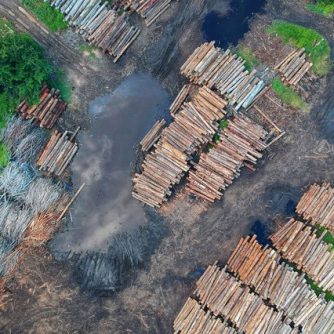
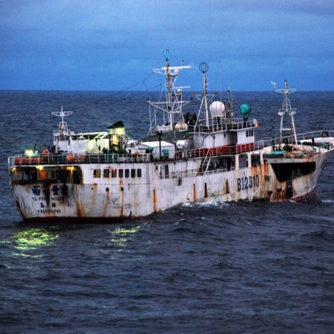
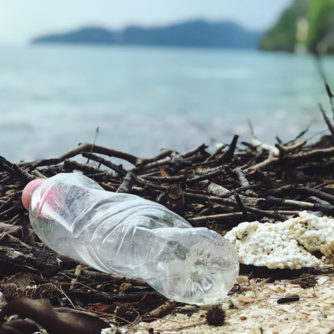
Transform our development model in depth.
The call affirms the need for a “transition to sustainable production and consumption patterns and sustainable food systems that meet people’s needs while staying within the planet’s limits”, as well as a “transition to sustainable growth, decoupled from resource use, including a shift to a circular and resource-efficient economy, encouraging behavioural change and significantly scaling up nature-based solutions and ecosystem approaches on land and at sea”.
Public policy must reflect and drive this systemic change. The signatories committed to “integrate biodiversity into relevant sectoral and cross-sectoral policies at all levels, including in key sectors such as food production, agriculture, fisheries and forestry, energy, tourism, infrastructure and extractive industries, trade and supply chains”.
Because of the close links between ecosystem conditions, animal health and human health, the signatories stress the need to “integrate the ‘One Health’ approach into all relevant policies and decision-making processes, at all levels, in order to address health and environmental sustainability in an integrated manner.”
Finally, the signatories, implicitly recognizing the limits of the system of voluntary commitments without real follow-up or sanctions, made a point of specifying: “We are not content with words, but we commit ourselves to meaningful action and to making ourselves mutually accountable to address the global emergency. It marks a turning point and comes with the explicit recognition that we will be judged, now and by future generations, on our willingness and ability to meet its goals.”
The biodiversity conservation system must be based on “a clear and robust set of goals and objectives, supported by the best available science, technology and research as well as indigenous and traditional knowledge” and “a robust monitoring and review mechanism”.
So here we have a clear statement and a comprehensive roadmap. It remains to be seen what the final impact of this “commitment” will be, beyond the recognition of the scope of the work to be done.
In the short term, we must hope that the months that still separate us from the 15th meeting of the parties to the
Convention on Biological Diversity
We hope that the remaining months between now and the 15th Meeting of the Parties to the Convention on Biological Diversity, which has been postponed to 2021 and will be held in Kunming, China, will be decisive. On the one hand, to translate the goodwill expressed into clear and measurable objectives, and on the other hand, to rally the large countries that are still waiting.

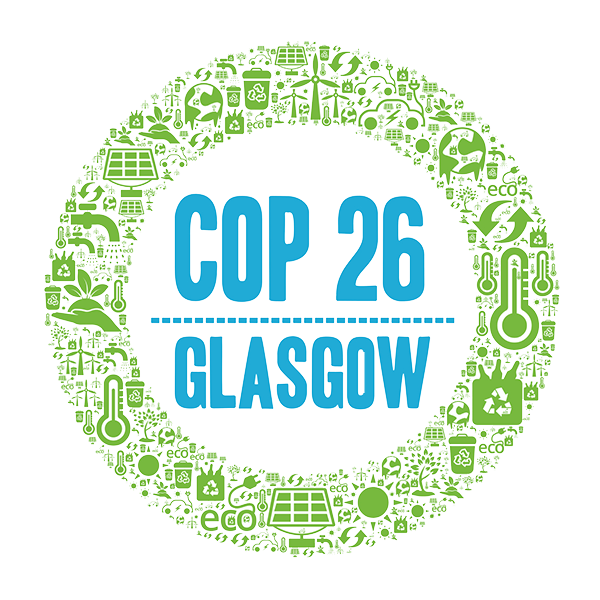
In the medium term, this step forward will have to be translated into action and the objectives will have to be achieved. The decade starting in 2021 will be the decade of a new framework for global biodiversity, which I hope will be ambitious, the decade of strengthened national commitments for climate (to be decided at the
COP26 in Glasgow
), the decade of ocean sciences for sustainable development, the decade of ecosystem restoration. All these dynamics can converge to make a real difference in the preservation of our planet… Let’s not spoil such an alignment of the planets!
In his message to the summit of Heads of State and Government on biodiversity organised by the United Nations on 30 September 2020, H.S.H. Prince Albert II recalled the importance of biodiversity as a fundamentally social issue.
"Of all the many painful crises facing our world, the one concerning biodiversity is probably one of the least noticeable. It is however one of the most acute.
This phenomenon is not only measured in species loss. It is also measured in crop losses, in drought, in floods, in human tragedy. »
"It's not just about preserving a few species, a few ecosystems, or even a few seas. It's about preserving our planet, our future, our lives. »
The Sovereign also specified the main initiatives that the Principality is already supporting in favour of marine biodiversity:
"The Principality of Monaco has joined the Global Ocean Alliance, which aims to protect at least 30% of the ocean by 2030, in the form of marine protected areas, and this should not exclude Antarctica, the continent that our predecessors in their wisdom dedicated to science. [Monaco a] created, with France and Tunisia, the Medfund, an innovative financial mechanism designed to promote the development and networking of Mediterranean marine protected areas. »S.A.S. le Prince Albert II de Monaco
Finally, the worrying situation of coral reefs has led the International Coral Reef Initiative (ICRI), which Monaco co-chairs, to propose to include the recognition of their specificity in the context of the Global Biodiversity Framework, in view of their importance and their situation.
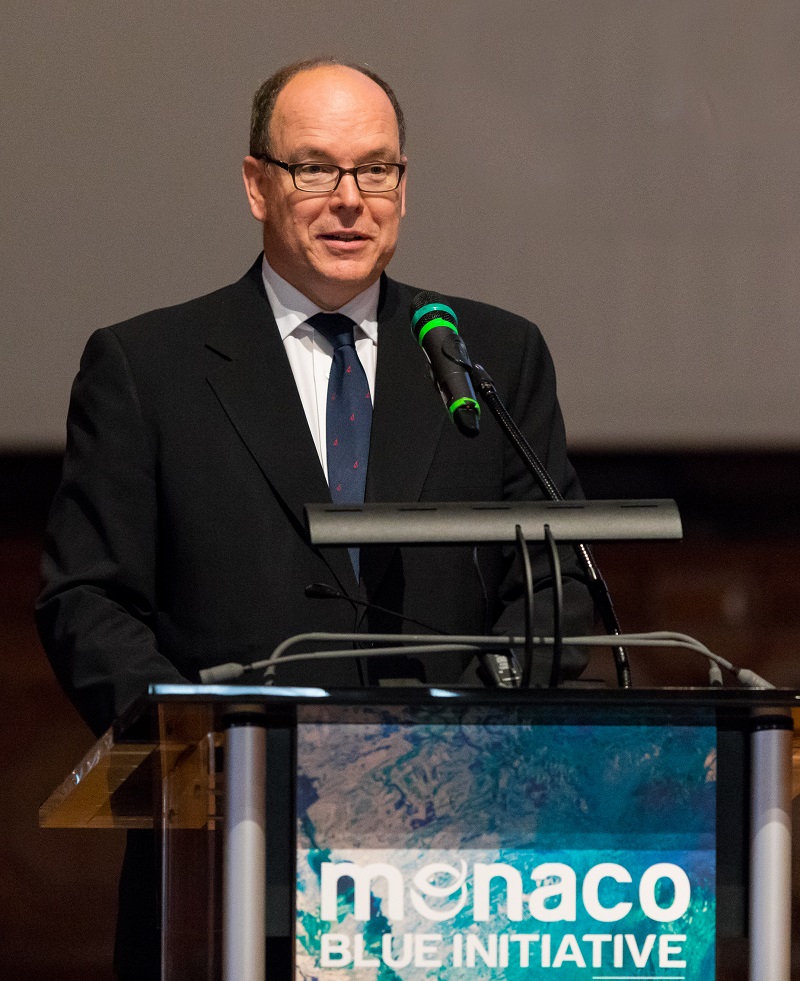
See also
Balloon release
Monaco commits to fighting pollution
- Home
- Categories
- Monaco, the voice of the Ocean
The animals are at the party!
Very good news for the environment and in particular for turtles and sea birds: the Government of the Principality of Monaco has just prohibited, by ministerial decree of 17 March 2020, the release into the atmosphere of balloons and flying lanterns for recreational, commemorative or leisure purposes.
This decision marks an important step in the Fête sans balloons initiative, launched almost a year ago by the Oceanographic Institute,
hand in hand with the Government of Monaco
(Directorate of the Environment), as part of a
programme in favour of marine turtles
.
We hope that this decision will inspire other states and communities, coastal or not, to adopt a respectful attitude towards biodiversity, without giving up the party!
As soon as sanitary conditions permit, we are getting ready to test the beautiful ideas for a Balloon Free Party that we have been collecting for several months.
By the way, if you have ideas for alternatives to balloon releases, don’t hesitate to continue sharing them on the Facebook Group specially created for the occasion or to be inspired by the proposals made:
join the group.
More about the "Balloon-free party" initiative
A released balloon rises into the sky, until it deflates or the decrease in atmospheric pressure causes it to burst into multiple fragments.
This debris then falls back to land and sea far from its release point. According to the United Nations Environment Programme (UNEP), balloons are in the top 10 of recreational waste found on the coast. They can travel thousands of miles and pollute the most remote and pristine areas.
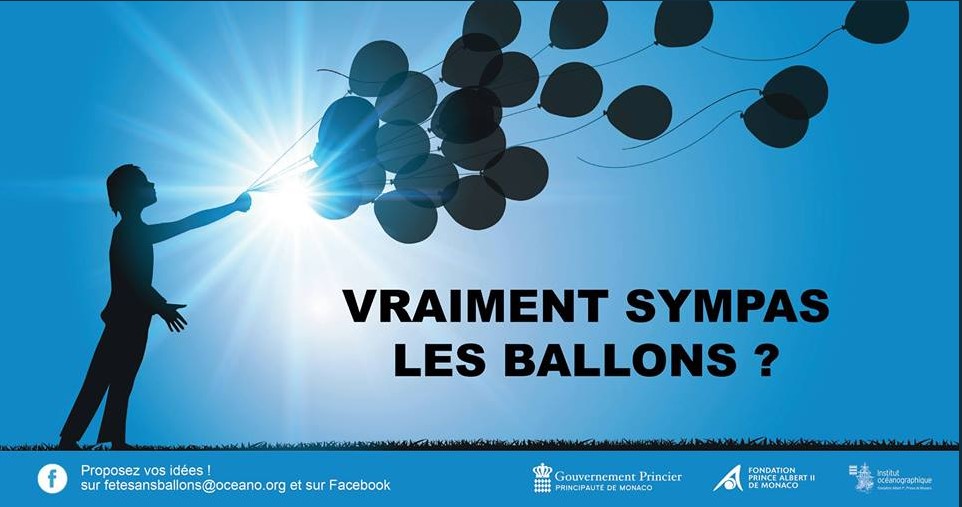
See also
IPCC SPECIAL REPORT
Special report on the ocean and cryosphere in a changing climate
- Home
- Categories
- Monaco, the voice of the Ocean
IPCC: 51st session in the Principality of Monaco
The Intergovernmental Panel on Climate Change (IPCC) held its 51st session in the Principality of Monaco from 20 to 23 September 2019 during which it considered the Special Report on Ocean and Cryosphere in a Changing Climate (SROCC).
For the IPCC, ” Humanity depends directly or indirectly on the Ocean and the Cryosphere. The ocean covers 71% of the earth’s surface and accounts for 97% of the water on earth. »
The “Cryosphere” represents all the components of the Earth system that are frozen, on the land and under the land, on the surface of the ocean or under the surface of the ocean. This includes snow cover, glaciers, polar ice caps, ice floes, icebergs, sea ice, freshwater lake ice, river ice, permanently frozen ground (called permafrost), and ground that is seasonally frozen.
Find below the replay of the conference.
WATCH LIVE - 11:00 CET ON WEDNESDAY 25 SEPTEMBER
September 25, 2019:Results
The report was made public at a press conference at the Oceanographic Museum in Monaco.
The IPCC in brief
The Intergovernmental Panel on Climate Change (IPCC) is an intergovernmental body that specializes in the study of climate change science. Established in 1998 by the United Nations, its purpose is to provide policy makers with regular assessments of the state of scientific knowledge on climate change.
– Ocean & Cryosphere in a Changing Climate (September 2019): See the Report (or click on the button below to the IPCC website to access all online resources)
The IPCC’s main assessment report comes out every six years and is punctuated by more specific special reports. Three special reports were issued during this sixth evaluation cycle:
– Global warming at 1.5°C (2018): https://www.ipcc.ch/sr15/
– Climate Change and Land Use (August 2019):
https://www.ipcc.ch/report/srccl/
The IPCC assessments are written by hundreds of international scientists, recognized for their expertise, before being submitted to the governments of the 195 member countries. The IPCC does not conduct its own scientific research but relies on existing publications.
The main challenges faced by human societies today are also associated with climate change [...]: the systemic effects of these phenomena have not spared a single area of the planet and constitute factors of environmental upheaval that exacerbate the imbalance in our oceans.”
S.A.S. le Prince Albert II de Monaco
The Prince Albert II of Monaco Foundation (P.A.I.2) is active in three priority areas of action:
- Limiting the effects of climate change and promoting renewable energy
- Preserving biodiversity
- Managing water resources and combating desertification
Ocean and Climate Platform
Born in 2014, the Platform Ocean and Climate (POC) is a coalition of scientists from different disciplines (researchers, NGOs, aquariums, French and international institutions…).
As the only French NGO to have participated in the review of this major new report, the POC is now presenting “Ocean and Climate Change: The New Challenges”, a booklet deciphering 6 major themes addressed in this report: warming, melting ice, rising sea levels, extreme events, and deoxygenation
A healthy ocean means a protected climate, and a good understanding of these cause and effect links is a prerequisite for our evolution towards a sustainable world that respects all living things.
– The Knowledge Dissemination sheets : Link to come
– The scientific sheets : Link to come
The IO and the POC: a founding member of the POC, the IO is on the Board of Directors and participates in the development of content.
VALERIE MASSON-DELMOTTE: UNDERSTANDING THIS REPORT
Climate expert and Co-Chair of an IPCC working group, member of the Board of Directors of the Oceanographic Institute, Valérie Masson-Delmotte explains the links between ocean and climate…
Office for Climate Education (OCE)
Established in 2018, the Office for Climate Education (OCE) aims to organize strong international cooperation between scientific bodies, NGOs and educational institutions to educate present and future generations about climate change.
Here are some resources produced by the COA to further your understanding of the report:
– An educational guide and resources on Ocean and Climate for primary and secondary school teachers. Link to come
– •
Summary for teachers
Why produce a report on 1.5°C of warming?
– •
Ocean and Climate Training Resources
.
– •
Greenhouse Effect Training Resources
Greenhouse Effect Training Resources: aimed primarily at teacher trainers.
The Oceanographic Institute wishes to promote the OCE tools produced in connection with Ocean and Climate Change through communication actions.

Feedback
We want people to remember that the issue is a serious one, but that we can do something to make progress and face the challenges. France has set itself the objective of becoming carbon-neutral by 2050, and for the time being emissions are not falling quickly enough.
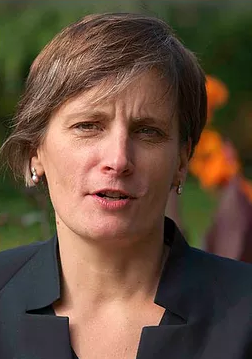
H.S.H. Prince Albert II of Monaco
Speech about the Ocean
- Home
- Categories
- Monaco, the voice of the Ocean
Year 2021
- Annual session of the National Academy of Sciences 25/04/2021
On the occasion of the annual session of the National Academy of Sciences in Washington, D.C., H.S.H. Prince Albert II gave a recorded speech to commemorate the centenary of Prince Albert I’s 1921 Speech on the Ocean.
- Monaco Blue Initiative, Monaco, 22 March 2021
Introductory speech
MBI 12th edition
Lhe best thing to do is to build a dialogue between the different actors involved. To bring together knowledge, expertise and resources. To build shared diagnoses, ambitions and strategies.
At a time when major international events are in the offing, the’s agenda for 2021 in terms of both biodiversity preservation and conservation of the environment.’Océan, c’This is the ambition that must drive us.
- World Ocean Summit, 04/03/2021
H.S.H. Prince Albert II of Monaco mentioned current major ocean challenges
The Sovereign addressed, more specifically, the need for efficient management of marine protected areas, but also the hopes raised by negotiations on marine biodiversity in areas beyond national jurisdiction and the opportunities linked to the ocean in terms of energy transition. The Sovereign also reminded us of this essential message while we think of the Ocean far removed from our daily lives: “To speak of the Ocean is to speak of our human life here and now. It means tackling subjects as vast and complex as health, energy, nutrition, the economy, innovation, trade and international security.
Year 2020
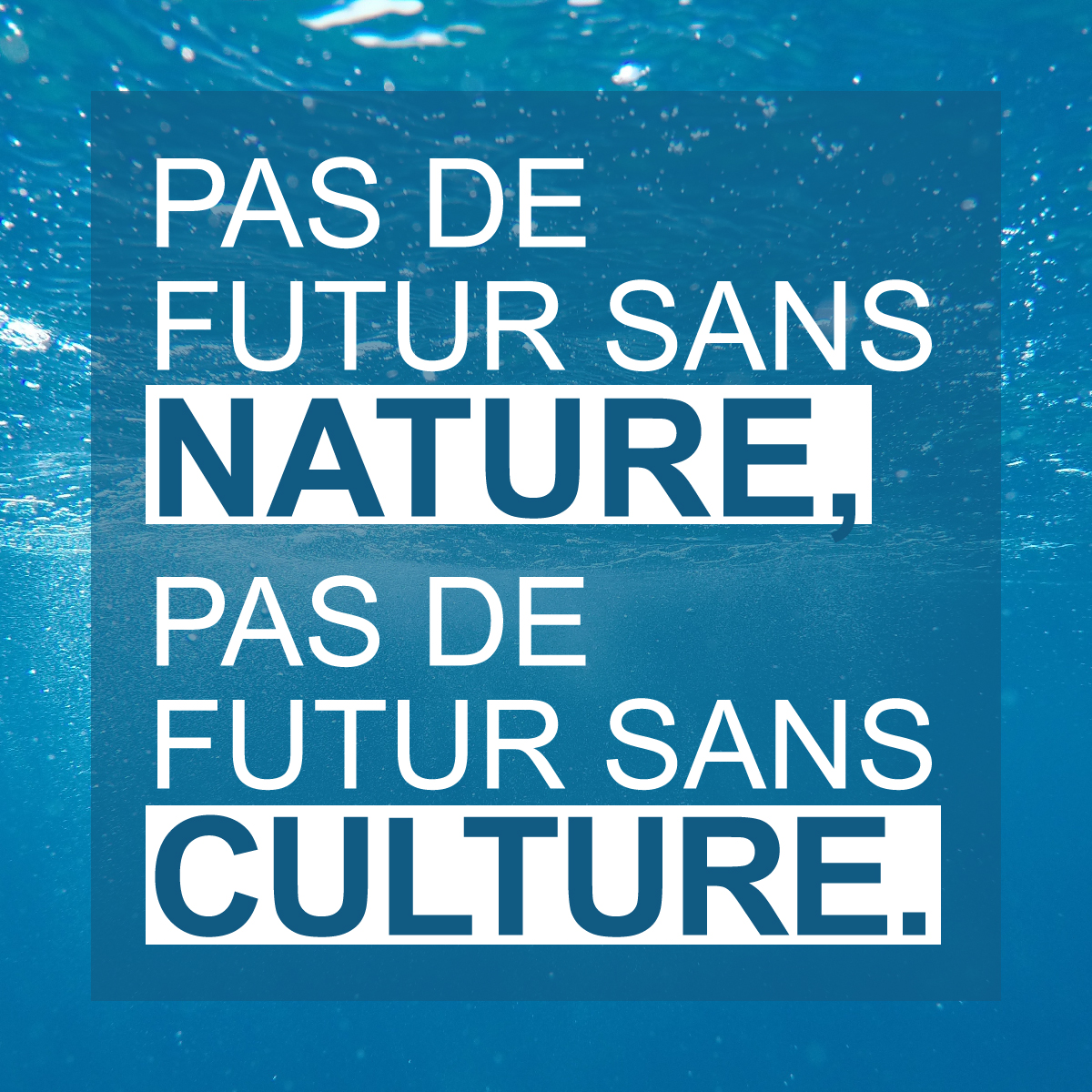
- Monaco, 13 December 2020
For a deconfinement of minds
The topicality of the closure of cultural venues and their major roles in our society and economy is more relevant than ever. This Tribune explains the importance of the dialogue between Science and Culture to build the world of tomorrow. This is not just a question of economic activity; it is our openness and resilience in the face of the current crisis and in inventing the future that is at stake.
It istime to oppose the rebound of the epidemic and the economic crisis with a rebound of enthusiasm and imagination. With the economy, it is curiosity, discovery and creativity that must be revived so that we emerge stronger, better able to face the major environmental and social challenges.
To deconcentrate minds and rekindle the imagination, to take up the planetary challenges and prepare a more livable and exciting future, is our answer, because there is no future without Nature, nor a future without Culture.
A Tribune initiated by the Oceanographic Institute, published in the Journal du Dimanche, whose first signatory is H.S.H. Prince Albert II of Monaco, joined by 32 other international signatories from the worlds of science and culture: Laurent Ballesta, Charles Berling, Stéphane Bern, Sandra Bessudo, Robert Calcagno, Jean Chambaz, Xavier Darcos, Bruno David, Peter Herzig, François Houllier, Alexis Jenni, Murielle Mayette, Erik Orsenna, Vladimir Ryabinin, Enric Sala, Philippe Taquet, Valérie Verdier…
- International Hydrographic Organization, 16/11/2020
Opening remarks of the IHO Assembly by HSH Prince Albert II of Monaco
The achievements accomplished by the International Hydrographic Organization are a sign of the role and necessity of this lasting notion of multilateralism for technical consultations.
The IHO was founded in this sprit almost 100 years ago and it is just as relevant today as it was at the time of my great great grandfather, Prince Albert Ist who invited the International Hydrographic Bureau, predecessor of the International Hydrographic Organisation, to set up its headquarters here in Monaco in 1921, where it has remain every since.
- Virtual Summit of Heads of State and Government on biodiversity,
New York, September 30, 2020
Decision-makers take action for nature and biodiversity
It is not just a matter of preserving a few species, a few ecosystems, or even a few seas. It is a question of preserving our planet, our future, our life.
That is why it is so important to act, and to act now.
- United Nation Ocean Conference, 04 June 2020
"A digital ocean: data and science session"
Interconnecting the decisions of political and economic players more effectively with the work of the scientific community should more than ever before be at the heart of our strategies, because the connection between science, decision makers and public opinion has always been the principle of any responsible action.
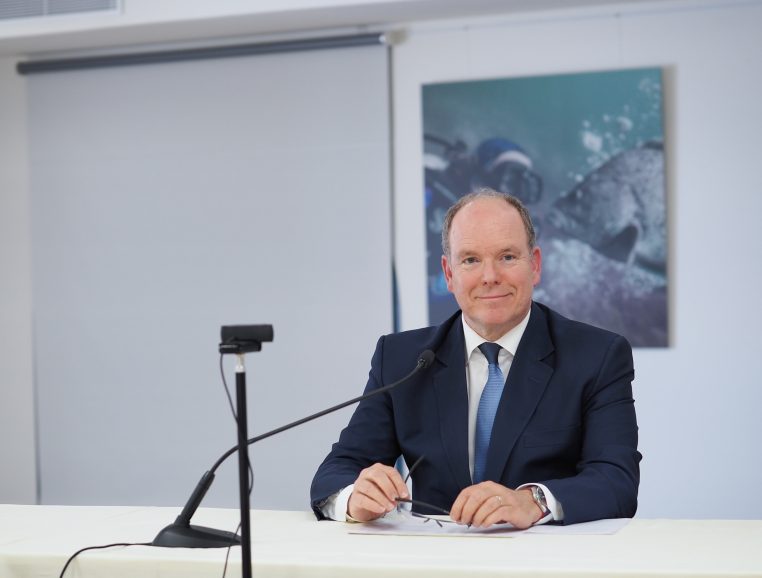
- Monaco Blue Initiative, 28 May 2020
opening of the MBI #11
In the particular context of the COVID-19 crisis, the MBI that was to be held in March in Monaco was cancelled and replaced by high-level video-conference sessions. On this occasion, H.S.H. the Prince made a significant speech.
“To know men, one must see them act” wrote Rousseau. This applies to our subjects as much as to others: to really know our relationship with the oceans and to hope to change it, we must see ourselves acting towards the seas. This is what the Monaco Blue Initiative is all about.
- Monaco, 22 April 2020
Earth Day: HSH Prince Albert II of Monaco made a speech in favour of protecting the planet
The fragility of humanity that we are witnessing must lead us to reflect on our priorities and, first and foremost, to reinvent our relationship with nature.
Through the immense social and economic changes that it is bringing about, and that it will bring about for many months, and perhaps for many years to come, this crisis must encourage us to better preserve our Planet, its climate, its biodiversity and its oceans.
Year 2019
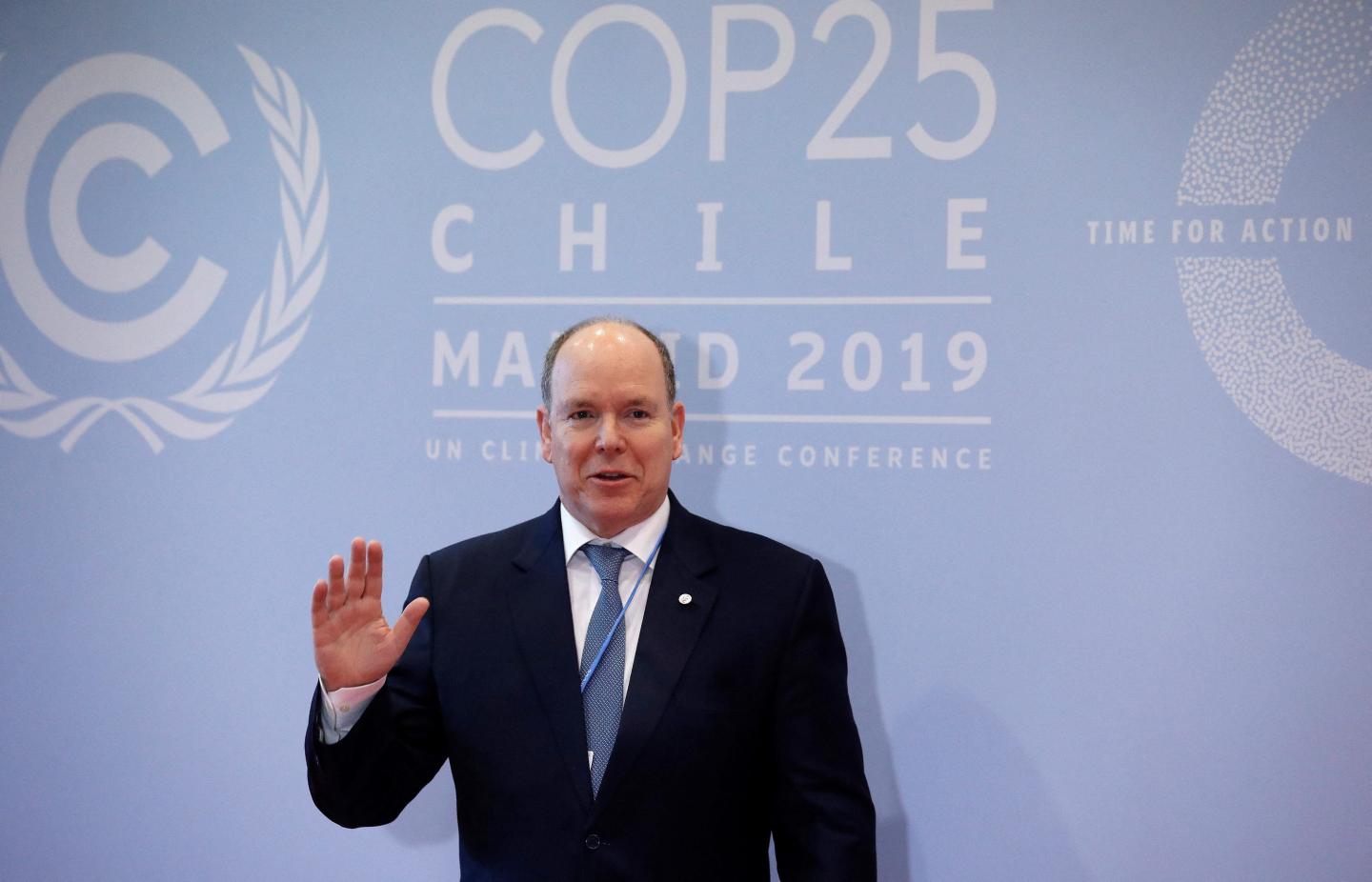
COP 25 Chili - Madrid, December 2019
The “blue cop”, focused on the ocean
In line with his commitments on the IPCC special report on the ocean and cryosphere, H.S.H. Prince Albert II participated in the COP 25 organized by Chile and relocated in Madrid, from 2 to 13 December 2019.
We cannot effectively combat climate change without taking swift, ambitious and coordinated action to protect and preserve the Ocean. The world will be watching COP25 and expects nothing less than a collective commitment of responsibility to ensure the protection and integrity of our ocean ecosystem and to mitigate further damage to the Earth and all living things on it.
- Oceanographic Museum of Monaco, 7 November 2019
Presentation of the Grand Medals Albert I
The global pressure on our planet affects everyone and hits the weakest hardest. In this context, international solidarity and multilateral dialogue are more essential than ever.
The ocean, like the climate, invites us to do so. They link species, peoples and individuals of all origins and conditions, wherever they may be, for better or for worse, by a link as indestructible as it is vital.
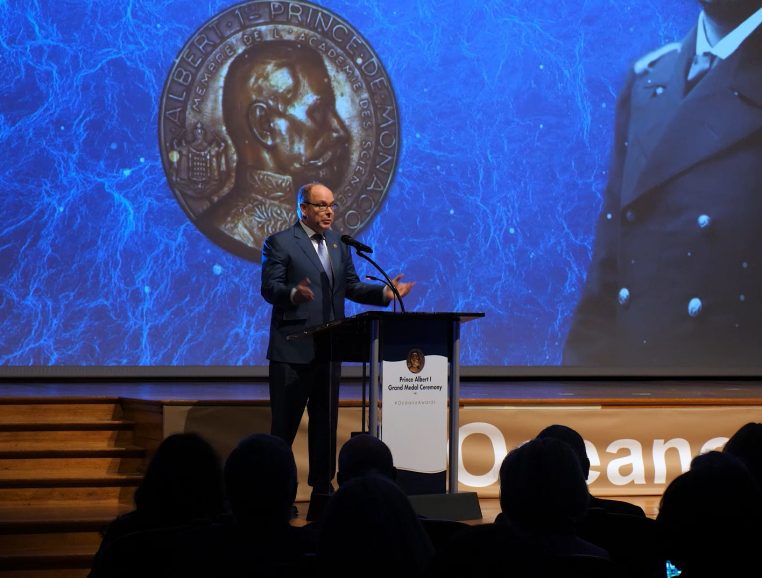
United Nations General Assembly - 24 Sept. 2019
the principality committed to the climate
The Government of Monaco is committed to carbon neutrality and is giving itself the means to achieve it, declared Prince Albert II at the United Nations General Assembly. In his speech, the Sovereign also emphasized the role of forests and even more so that of the ocean. Monaco has “historically chosen to support science,” he added.
Climate change and the collapse of biodiversity, far from being isolated crises, are two alarming symptoms of the Antrhopocene that need to be addressed in synergy.
- Paris, UNESCO Headquarters - 29 July 2019
Centenary of the International Geodetic and Geophysical Union
The ardent need to protect the ocean has succeeded the time of discovery and knowledge of the seas, which was that of my great-great-grandfather.
Monaco strives to continue to follow his will and to make his legacy fruitful by updating his message.
Through its own initiatives as well as by proposing to its partners to relay and amplify their own actions, the Principality strives to be a “voice of the ocean”…

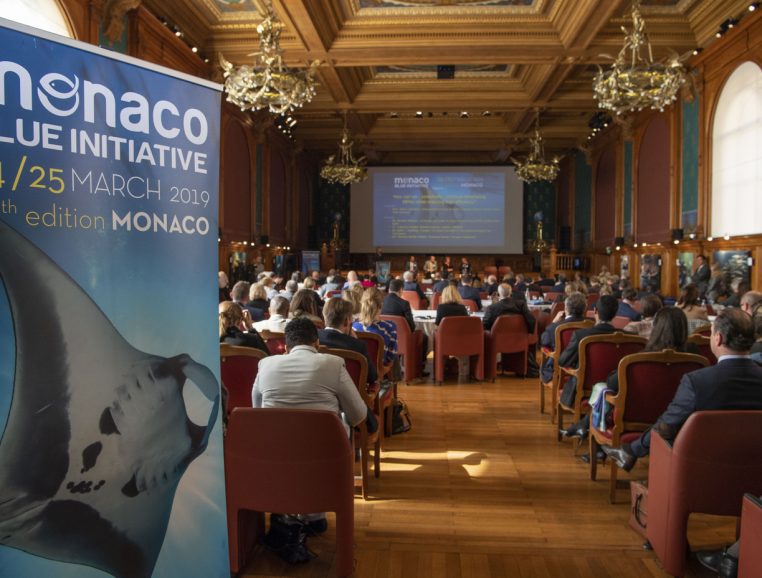
- Monaco Blue Initiative, 25 March 2019
opening of the MBI #10
There is a phrase by the great historian Jules Michelet that often comes to mind when I enter this Oceanographic Museum, which is right here on the Mediterranean.
“It is with the sea that all geography should begin”.
We also know that it is with the sea that all history must begin, for we know that we were born of the ocean and that our civilizations were born of the sea.
But it is also by the sea, more and more, that any economy should start.
I am sure that all politics, morals and philosophy will have to begin more and more with the sea.
- Monaco, Oceanographic Museum, 16 April 2019
Meeting of European Oceanography Centres
I think it is necessary, as you said, to develop a better understanding of the general public [sur les questions des sciences de l’océan]. People like information that tells a story, and if we can draw their attention to different ways of telling that story, and in a more engaging way, I think that would certainly help.
Listen to the recorded speech in English.
- Ecouter le discours (anglais) 00:00
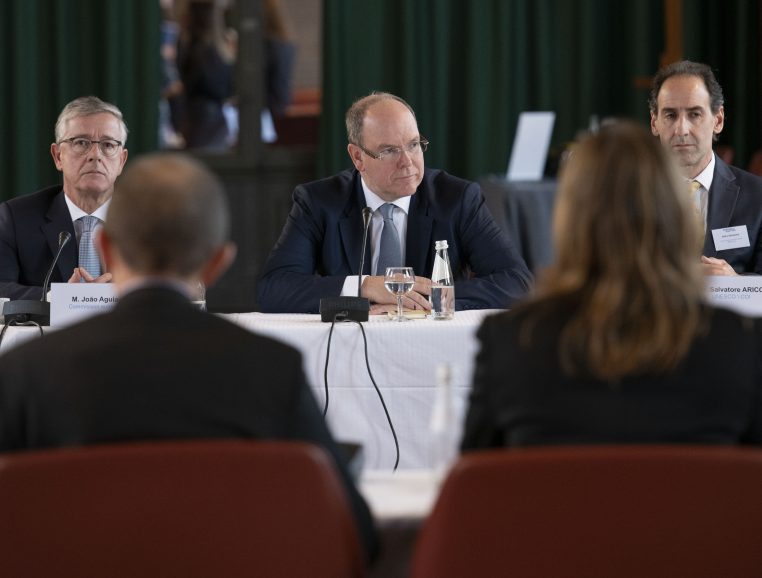
SEE ALSO
Message from H.S.H. Prince Albert II of Monaco, on the occasion of the 74th session of the Marine Environment Protection Committee, London – 13 to 17 May 2019, International Maritime Organization
Message from H.S.H. Prince Albert II of Monaco to the Director-General of UNESCO at the First Planning Meeting of the UN Decade of Ocean Sciences for Sustainable Development – 13 May 2019
Speech by H.S.H. Prince Albert II of Monaco, at the UN Tribune on the occasion of the conference on the oceans in the framework of Development Goal 14 “To conserve and sustainably use the oceans, seas and marine resources for sustainable development” – Speech June 2017.
The next edition of the Maritime Occupations Forum is to be held on 7 December, at the Maison, 195 rue St Jacques (RER Luxembourg) in Paris. Come and meet experts in a range of different careers in the marine sector.
The twilight of nature
- Home
- Categories
- Monaco, the voice of the Ocean
On May 6, the Intergovernmental Panel on Biodiversity and Ecosystem Services (IPBES) released an alarming report on the global state of biodiversity…
In 2011, the United Nations Decade for Biodiversity began, with ambitious targets for improvement by 2020. With a year to go before the end of the decade, who remembers it existed? Who can be pleased with the successes achieved?
The preservation of 10% of the ocean by Marine Protected Areas will not be achieved. However, it is certainly in this area that the best progress of the decade has been observed. For the rest, the assessment of biodiversity and ecosystem services coordinated by 149 international experts of the IPBES is particularly cruel. This work, unanimously validated by the representatives of 110 countries, cannot be criticized for its lack of seriousness. And, if we are to believe the experience of the IPCC, which is the model for IPBES 20 years in advance, successive reports gain in precision but never in optimism.
The ocean has not been spared
As late as 1950, Rachel Carson wrote in This Sea That Surrounds Us, ” [L’Homme] cannot dominate or modify the oceans in the same way that it was able to reduce and plunder the continents during its still brief occupation. “Today, if 75% of terrestrial environments are “significantly altered”, 66% of marine environments are subject to “increasingly cumulative effects”.
On land, the consumption of natural areas and their fragmentation are the main causes of biodiversity loss and reduce the scope for adaptation to climate change. In the sea, fish retain the ability to migrate to escape the continued warming of the ocean. Bony fish seem to be the least vulnerable today.
However, overfishing remains massive on an ocean-wide scale and is only getting worse. One third of stocks are now being exploited beyond natural renewal, thus “eating into” the natural capital.
Fishing is now one of the most globalized activities. As stocks have been depleted, industrial fishing, supported by unsustainable subsidies, has moved away from the centres of consumption to the high seas, the deep sea and the poles.
INEQUALITIES AND CONFLICTS
Artisanal fishing, which supports 90% of the world’s fishermen with only half the catch, is largely practiced in the tropical belt. However, in addition to overfishing, the latter is doubly a victim of climate change: fish are leaving this area, which has become too hot, to migrate to temperate regions, and coral reefs are in the front line of “heat waves”. The surface area of reefs has been halved since 1870 and species diversity is eroding rapidly: 33% of coral species are now threatened. However, it is precisely this diversity that creates the geometric complexity of the reefs that allows the reproduction and growth of the fish.
This is a glaring example of the injustices of biodiversity: temperate countries, which were the first to exceed the limits of fishing and CO2 emissions, could be the winners in the coming mess!
Similarly, while biodiversity is declining at a slower rate in areas managed by indigenous communities, the new race for resources is increasing the pressure on them, promising social as well as environmental disaster.
The IPBES report also analyses the very unfair nature of the erosion of biodiversity, while the consumption of certain parts of the world is degrading the environment at a distance. It also stresses that these inequalities “fuel social instability and conflict”, while “more than 2,500 ongoing conflicts” are linked to access to certain resources.
We can therefore only welcome France’s intention to devote the G7 Environment Summit, which ended on 6 May, to “combating inequalities by protecting biodiversity and the climate”. It remains to be seen whether action can be taken, in an international context that is not currently conducive to such a collective commitment.
In terms of biodiversity as in climate, there is no doubt that our planet has been much worse off over the last few million years but, as the IPBES report points out, degradation has never been so rapid since the emergence of the human species. As for the variations that man has previously experienced, they have affected a few million individuals and not ten billion. And in those days, borders did not exist. Will Man be caught in his own fragmentation?
Speeding up, but in which direction?
It is true that human society has never been so developed or so fast in its evolution. The IPBES report went around the world in a few hours. Everyone can take the measure of the situation and invent solutions.
However, just as computers have not eliminated paper and telecommunications have not eliminated air travel, the technological evolution of society has not so far been conducive to slowing the erosion of biodiversity. On the contrary. As living standards have risen, so has resource consumption, in addition to rapid population growth. Individual consumption of seafood products has doubled over the last fifty years in the global race for animal protein.
“Technology” in itself cannot therefore be an answer, and our history for at least two centuries has tended to consolidate and crystallize a model of unbridled consumption that is eroding the “fundamentals” of our planet, the services that IPBES has highlighted: while widespread overfishing has led to a gentle decline in the quantities fished over the past two decades, the disappearance of pollinating insects will soon affect agricultural crops.
IPBES advocates rapid “transformative change” at all scales simultaneously, from local to global. However, in order to obtain the unanimity necessary for the approval of the report, it is careful not to specify the solutions that will make up this overall change. And preserving biodiversity is an even more complex challenge than climate change, which is only one component…
CHANGING THE WORLD
IPBES makes explicit “Transformative change is defined as fundamental system-wide change that takes into account technological, economic and social factors, including paradigms, goals and values.”
While assembling a vast toolbox of identified intervention tools, IPBES emphasizes the depth of change required: “While current structures often distract from sustainable development and are the indirect mechanisms of biodiversity loss, deep, structural change is needed. By its nature, transformative change will meet opposition from those with a vested interest in the status quo, but this opposition can be overcome in the public interest.”
Therefore, the signals that govern our society must be redesigned, through “incentives for environmental responsibility and the elimination of harmful incentives”.
To use the road safety slogan, we are “All responsible”. But who is ready to lift their foot off the gas, which government is ready to put in place speed cameras when we know that we are all going into the wall at high speed?




